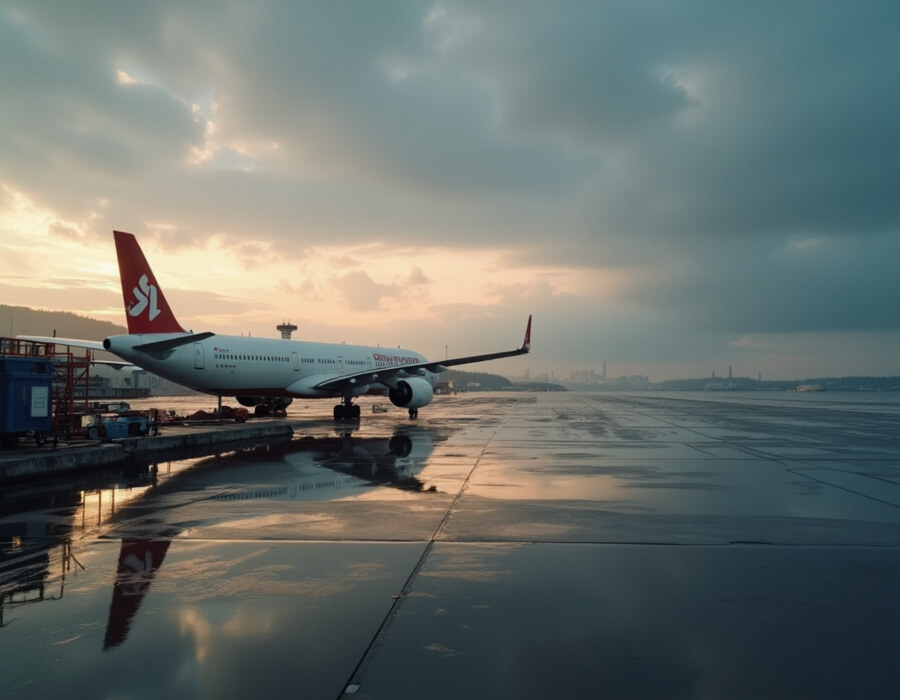Friday, May 30, 2025
Widespread flight cancellations and delays are currently impacting major air travel hubs across Switzerland, the United Kingdom, China, the United States, Portugal, Germany, Spain, and Ireland. A combination of pilot shortages, severe weather events, technical failures, and logistical challenges has created significant disruptions, leading to extensive passenger delays and forcing airlines to drastically adjust their schedules. These ongoing issues are not only straining travelers but also prompting urgent operational changes within the industry as carriers struggle to restore stability and meet soaring demand.
SWISS International Air Lines Announces Major Flight Reductions Amid Widespread Airline Disruptions
SWISS International Air Lines, a key member of the Lufthansa Group, has announced significant cuts to its flight schedule, cancelling over a thousand flights planned between now and October 2025. This move is expected to disrupt travel plans for tens of thousands of passengers and intensify competition for remaining seats, coming at a time when several other major airlines are also scaling back their operations.
In total, SWISS is cutting approximately 1.5% of its scheduled flights over the next five months. Notably, routes connecting the United Kingdom with Switzerland—particularly those from London, Manchester, and Edinburgh—are disproportionately affected, with cancellations accounting for about 12% of the total reductions. This reduction is expected to push travelers to seek alternative short-haul flights, increasing demand for airlines like British Airways and easyJet. On the long-haul front, SWISS has also scaled back flights to key international hubs such as Shanghai and Chicago.
The Swiss carrier’s move reflects a broader trend across the aviation industry, where airlines face a perfect storm of challenges leading to schedule disruptions and flight cancellations. For example, TAP Portugal has seen an alarming 37% of its flights arrive more than 15 minutes late in 2025 so far, highlighting ongoing reliability issues. Ryanair, Europe’s largest low-cost carrier, has reported approximately 77,000 delayed flights this year, while easyJet has experienced more than 26,600 delays. British Airways, KLM, and Lufthansa have collectively cancelled over 6,000 flights in 2025 to date.
Multiple Factors Fueling Flight Disruptions
A combination of operational challenges is driving this wave of cancellations and delays. One of the core issues across airlines is pilot shortages, which have put immense pressure on flight schedules and staffing capacity. Weather conditions have also played a significant role in disrupting operations. Earlier this year, Storm Éowyn battered the UK and Ireland, forcing numerous cancellations and delays, while heavy snowfall in Germany further complicated schedules across the region.
Technical and logistical issues have added to the turmoil. In March, London’s Heathrow Airport, Europe’s busiest, was forced to shut down for about 16 hours after a fire incident. This disruption alone led to the cancellation of around 1,300 flights and affected nearly 300,000 passengers. Additionally, a power outage in April across parts of the Iberian Peninsula caused widespread operational challenges for airlines serving the region.
Despite these significant issues, data from Travel and Tour World reveals an interesting paradox: overall flight cancellations have actually decreased by 32% compared to the same period last year. However, delays have surged by 54%, painting a complex picture where fewer flights are outright cancelled, but many more are running late.
Passenger Rights and Upcoming EU Vote
The timing of these disruptions is notable, as the European Union prepares for a crucial vote scheduled on June 5, 2025, regarding proposed changes to air passenger rights regulations. If approved, these amendments could raise the delay thresholds that airlines must meet before being required to pay compensation to affected travelers. The proposals also suggest reducing compensation amounts by up to 40%.
This potential rollback in passenger protections has drawn criticism from consumer advocates who argue that passengers are already grappling with unprecedented delays and cancellations. With compensation thresholds possibly increasing and payouts shrinking, many travelers worry that their rights may be significantly weakened just as disruptions intensify.
Flight cancellations and delays are severely affecting major airports across Switzerland, the UK, China, the US, Portugal, Germany, Spain, and Ireland due to pilot shortages, weather, and technical issues. Airlines are forced to overhaul schedules, creating widespread passenger disruption.
Impact on Passengers and Industry Outlook
The combination of mass cancellations, increased delays, and regulatory uncertainty creates a challenging environment for air travelers and the airlines alike. Passengers are urged to plan ahead, stay informed about schedule changes, and consider flexible booking options where available.
Airlines, meanwhile, face ongoing pressure to stabilize operations, manage staffing shortages, and adapt to unpredictable weather and technical conditions. The sector’s ability to navigate these hurdles will be crucial to restoring passenger confidence and maintaining the momentum of post-pandemic recovery.
In summary, SWISS International Air Lines’ substantial flight reductions reflect a wider pattern of operational difficulties hitting European carriers in 2025. While outright cancellations have declined from last year, delays have risen sharply, leaving many travelers frustrated. The pending EU vote on passenger compensation regulations could further shift the balance in favor of airlines, potentially at the expense of consumer protections during these turbulent times.



